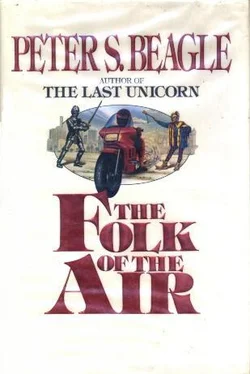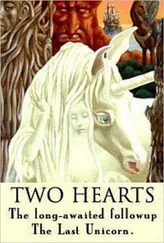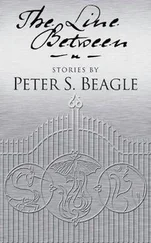“Oh, that’s just Garth showing off,” she answered scornfully. “He always brings Joyeuse to the dances. They have very strict rules about all that. You’re not allowed to fight with anything that’ll take an edge, but it has to hit hard enough so that it would cut armor if it were sharp. The way it works out, the weapons aren’t quite real enough to kill you—just to break a hand or a rib now and then. It’s a touchy point with the Brotherhood of Swordsmiths.”
“I’ll bet,” he said. “What a thing. Are you a brother swordsmith?”
“No, I’m in the Artisans’ Fellowship. We’re the ones who make the clothes and the household banners, paint the shields, and whatever else people commission us to do. I don’t make armor anymore; I just did that when I began with the League.”
The owl was back, moth-gray in the moonlight, wheeling and stooping above the pavane, calling thinly in what Farrell was sure was anger at finding its hunting grounds so utterly occupied. Julie pointed King Bohemond out to him—a stocky, balding, youngish man wearing a long purple tunic and cope, both garments cut and heavily embroidered in the Byzantine manner. He was standing with three other men—the red Tudor was one of them—under a tree just beyond the clearing. Farrell asked, “How do you get to be a king in Huy Braseal?”
“Armed combat,” Julie said. “The same way you win your knighthood or become one of the Nine Dukes. There are a few rituals and trials to go through, but everything comes down to fighting. Bohemond’s only been king for a couple of months, since the Twelfth Night Tourney.”
The pavane ended with a bone-whistle trill of the crumhorns and a lingering sunset flare of cloaks and plumed caps. Farrell saw that Garth de Montfaucon made as long and deep a reverence to the musicians as anyone there; but the young girl beside him stood up in her blue gown with a slender, edged arrogance that seemed to make the kerosene flames bow down together. Farrell could not see her face.
“Who’s that?” he asked. The girl turned suddenly, saying something to Garth and brushing back a lion-colored wilderness of hair with her forearm. Beside him Julie said quietly, “Aiffe,” and the small sound was like the rustle of wings.
“Aha,” Farrell said. “Aiffe of Scotland.” At this distance, his only impressions were of the fierce hair, of skin tanned almost to the same dusty shade, and of a slight, long-waisted form whose step on the earth made him remember once watching a rainstorm coming toward him across a mountain lake. It was the most elegant motion he had ever seen—a languorous pavane over the water—and nothing could have stopped it. “I know that name,” he said. “There’s a story about Aiffe.”
The musicians had downed their instruments and were accepting paper cups of wine from all sides, as the dancers dispersed to seek their own refreshments in the pavilion. Julie shook her head and rubbed her arms. She said, “Her name is Rosanna Berry. She goes to high school. She’s fifteen years old.”
Farrell studied the taut, haughty figure, at once a princess and a skinny golliwog under the splendid splash of hair. “Mustn’t forget to give her Prester John’s regards. The very throne may depend on it.”
Julie stood up abruptly, brushing leaves from her gown, looking away from Farrell as he rose with her. “Let’s go home,” she said. “I shouldn’t have brought you here.” She spoke rapidly, almost mumbling. Farrell had never heard her voice so strangely dimmed.
“Why?” he asked. “Jewel, I didn’t mean to make fun, I’m sorry.” He took her hand, turning her to face him. “I’m just trying to pick up on the rules of the game,” he said. “Jewel, what is it? I’m really sorry.” Beyond her he could see Garth de Montfaucon making his way toward the musicians, towing the girl Aiffe after him. She trailed along serenely, smiling and shaking her hair.
Julie’s hand felt like Pierce/Harlow’s knife skidding distantly through his own. Still not quite looking at him, she said, “Of course it’s a game. Middle-class white people running around in long underwear, assistant professors hitting each other with sticks, what else could it be? Thanks for reminding me, Joe.”
“Do you forget?” She did not answer him. Farrell said, “Old Garth—I’ll bet it’s no game for that boy. I’ll bet Garth forgets a lot.” He wanted to ask her about Ben, but told himself that it could wait until they were home. Instead he asked, “Why did you bring me here? Because of the music?”
Crof Grant ambled improbably by, munching on a dripping turkey leg and chanting with the vacant volume of a sound truck:
“ Dool and wae for the order
Sent our lads to the Border !
The English, for ance, by guile wan the day;
The Flowers of the Forest ,
That fought aye the foremost ,
The prime of our land, lie cauld in the clay .“
Julie slipped a pale circlet of woven clover stems over Farrell’s right hand. “Favor from a lady,” she said absently. “You have to have a name and a favor.” She smiled at him then and linked her arm in his, as briskly back with him as she had been suddenly gone somewhere cold and narrow. “Because of the noises,” she said. “Come on, let’s go meet King Bohemond of Huy Braseal.”
They crossed the clearing slowly, pausing often for Julie to be greeted as a sister by personages out of Charlemagne’s world, and Saladin’s, and Great Harry’s. Farrell was presented to a bright swagger of tunics, tabards, doublets, and mantuas answering to such names as Simon Widefarer, Olaf Holmquist, the Lady Vivienne d’Audela, Sir William the Dubious, and Don Claudio Baltasar Ruy Martin Ildefonso de Sanchez y Carvajal. They said, “Lady Murasaki, it me rejoiceth to see thee here again,” and, considering Farrell, “Well, my lady, and what sweet scoundrel is’t you bring us, say now?” Farrell was most taken with the Lady Criseyde and her husband, Duke Frederik the Falconer—they had almost identically dark, angular, shy faces—and with the black woman, whose companion introduced her as Amanishakhete, Queen of Nubia. Farrell bowed over her hand and was told, “Pay him no mind, he calls me anything comes into his head. My name is Lovita Bird, and honey, there is no improving on that.” He also met the Countess Elizabeth Bathory, whom he had last seen in the green convertible, wearing nothing but gold chains. Close to, she looked exactly like a blunt-faced, jasper-eyed Persian cat, and she scratched Farrell’s palm when he kissed her hand.
There was no sign of Ben anywhere. Farrell would have liked a closer look at Aiffe, but she had vanished, though Garth de Montfaucon was ever present on the edge of all encounters, twiddling his mustache or the hilt of his sword. Then Julie was curtsying demurely before King Bohemond, murmuring, “God keep your Majesty.” Farrell dropped enthusiastically to his knees and cried out, “Long live the king! Kings may override grammar!”
King Bohemond said, “What the fuck?” The men standing with him all cleared their throats, and the king mumbled wearily, “Sorry. What bodeth this outlandish manner of exhortation?”
“It’s my favorite proverb about royalty,” Farrell explained. “The Emperor Sigismund said it, sixteenth century sometime. I think they called him on using the dative case instead of the ablative.”
“Way to go,” the king grunted. He put both hands on Farrell’s shoulders, patting him in little tentative dabs. “Rise,” said King Bohemond. “Rise, Sir Pooh de Bear, most faithful of all my knights.” Farrell rose with some difficulty, for the king was leaning heavily on him, humming what sounded like Your Cheatin‘ Heart to himself. Farrell managed it by clinging unobtrusively to the griffin-embroidered silken stole that crisscrossed on Bohemond’s chest.
Читать дальше












